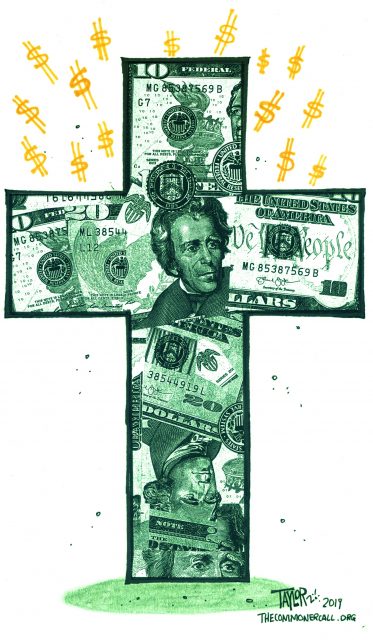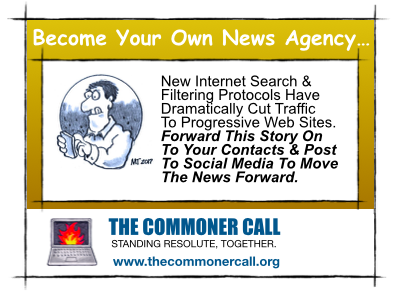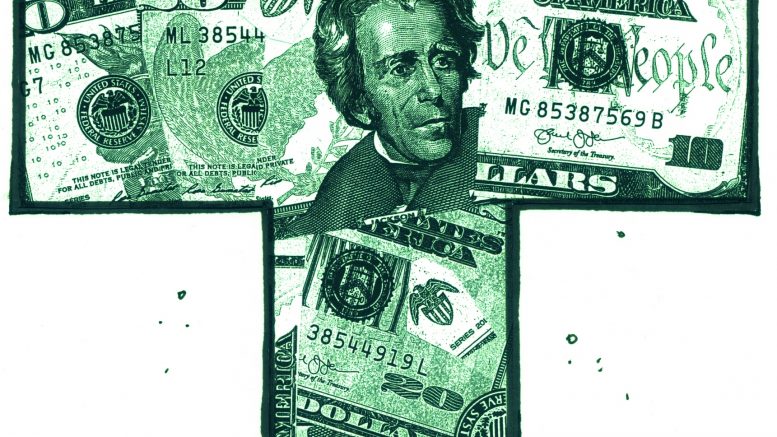 The rise of corporate religous nationalism.
The rise of corporate religous nationalism.
By Ron Briley
History News Network (3/23/16)
The 2016 annual meeting for the Organization of American Historians (OAH) will feature a session focusing upon the provocative book One Nation Under God by Princeton history professor Keven M. Kruse. In One Nation Under God, Kruse argues that the idea of the United States as a Christian nation does not find its origins with the founding of the United States or the writing of the Constitution. Rather, the notion of America as specifically consecrated by God to be a beacon for liberty was the work of corporate and religious figures opposed to New Deal statism and interference with free enterprise. The political conflict found in this concept of Christian libertarianism was modified by President Dwight Eisenhower who advocated a more civic religion of “one nation under God” to which both liberals and conservatives might subscribe.
Kruse concludes that with the polarization of America in the 1960s over such issues such as school prayer and the war in Vietnam, politicians such as Richard Nixon abandoned the more inclusive civic religion of the Eisenhower era. Kruse writes that by the 1970s “the rhetoric of ‘one nation under God’ no longer brought Americans together; it only reminded them how divided they had become” (274). Arguing that public religion is a modern invention that has little to do with America’s origins, Kruse maintains that contemporary political discourse needs to better recognize the political ideology being perpetuated by the advocates of America as a Christian nation. Needless to say, Kruse’s arguments will antagonize many on the Christian right, as well as many on the left who have employed Christianity as the means through which to implement principles of equality and opportunity as extolled by Jesus of Nazareth, the working-class carpenter.
Nixon attempted to employ religious nationalism as a means through which to brand those opposing his administration or the war in Vietnam as attacks upon American Christian values.
Drawing upon extensive archival research, the first part of Kruse’s book documents the alliance between religious leaders such as Congregationalist minister James W. Fifield Jr. and businessman J. Howard Pew Jr., president of Sun Oil and a major figure with the National Association of Manufacturers. Working out of his affluent Los Angeles community and congregation, Fifield formed a national organization called Spiritual Mobilization that attracted the support of big business while embracing unfettered capitalist traditions threatened by Franklin Roosevelt’s New Deal policies. The fertile ground plowed by Spiritual Mobilization and Fifield prepared the way for the influential prayer breakfasts of Methodist minister Abraham Vereide and the crusades of evangelist Billy Graham. While the insecurities of the Cold War contributed to the growth of postwar religious fervor, Kruse insists that the prayer movement and Graham “effectively harnessed Cold War anxieties for an already established campaign against the New Deal” (36).
The prayers of the Christian libertarians were answered with the ascendancy of Dwight Eisenhower to the Presidency. While Graham was given a cold shoulder by Harry Truman, the evangelist was welcomed to the White House by Eisenhower, who also supported the prayer breakfast movement bringing together Congressional leaders and members of the business community. While he lacked allegiance to any specific denomination, Eisenhower was a devout Christian who opened cabinet meetings with prayer. Kruse argues that the President endorsed a rather general sense of Christian principles that would unite the nation under a common understanding of its religious heritage. Thus, Eisenhower supported Congressional legislation that added the phrase “under God” to the Pledge of Allegiance while also embracing “In God We Trust” as the nation’s official motto that was included on the nation’s money supply. The Eisenhower administration also endorsed the National Association of Evangelicals call for a July 4, 1953 March of Freedom declaring that the American government was based upon Biblical principles. The concept of “One Nation Under God” was also championed in the popular culture by the creation of Disneyland and Cecil B. DeMille’s film epic The Ten Commandments (1956), while the National Council for Advertising championed Madison Avenue techniques that would bring the concept of God and free enterprise to all Americans on the local level. …
Read the Rest and Several Good Videos
(Commoner Call illustration by Mark L. Taylor, 2019. Open source and free for non-derivative use with link to www.thecommonercall.org )
*****
One Nation Under God: How Corporate America Invented ‘Christian’ America
The Majority Report With Sam Seder (5/7/15)
Princeton Professor and author of One Nation Under God: How Corporate America Invented Christian America, explains how Christian America is rooted in the corporate reaction against the New Deal. How corporations hired ministers to help destroy the New Deal. What is Christian libertarianism? How “The Family” was founded and was rooted in the corporations war against labor. Why Dwight Eisenhower accepted and even expanded the New Deal while embracing the language of the religious right. The National Prayer Breakfast and “God’s law” coming before America’s laws. How Ronald Reagan completed the counter revolution and why the movement is alive and well in the modern Republican Party.
*****
Trading Away Their Souls: Ex-Reagan Adviser Explains Why White Evangelicals Bow To Trump In Devastating Takedown Of Fake Christians
He hates the same people that they hate.
By Matthew Chapman
Raw Story (7/20/19)
Why do evangelicals — or at least, white ones — love President Donald Trump so much? Why do they stick by a president who has barely even read the Bible, has defiled marriage, and embodies the antithesis of so much of what their churches preach? Why, according to polls, did they essentially decide overnight that it’s no longer important for a president to have strong personal morals to be an effective leader?
In conversation with CNN’s Michael Smerconish on Saturday, former Reagan and George W. Bush adviser Peter Wehner, an anti-Trump conservative and himself an evangelical, tried to break down the calculus white evangelical voters have used to embrace Trumpism — and how it is poisonous for the future of Christianity in America.
“The thesis is that Donald Trump has tapped into something deep among some white evangelicals,” said Wehner. “The bottom line is that he will fight for them. Not that he himself is of Christian faith. Not even he himself is a manifestation of Christian virtues, but they feel like they are involved in an existential struggle against a malicious enemy that they consider to be the Left, the American Left. And Trump will try and vanquish that enemy. And that he’ll do it in means that they themselves might be uncomfortable with doing — there’s a ruthlessness to Donald Trump and a dehumanization of them that they feel like is necessary to defeat a foe that they think will destroy most of what they know and love.”
“Now in doing that, I think it’s led them into all sort of dark alleyways,” added Wehner. “I think it’s been tremendously discrediting to the Christian faith. And I think it’s shown to a watching world a tremendous amount of hypocrisy, after all this ‘character counts’ and ‘personal integrity’ and political leadership was central to what a lot of evangelicals argued when Bill Clinton was president. And now that it’s Donald Trump, they’ve decided to push it aside …”
- Here’s The Truth About The Shadowy Group Behind The National Prayer Breakfast — The National Prayer Breakfast is a relatively uncontroversial affair these days. Presidents from both parties make a habit of attending it, and giving simple speeches about what their faith means to them, and leaders from around the world join them. But a new Netflix documentary miniseries, “The Family”, explores the shadowy group known as the Fellowship, which originally set it up in 1935. The Fellowship began as a secretive fraternity of evangelical men, first organized under the leadership of a man named Abraham Veride, who was attempting to gather business leaders to thwart union drives. It evolved into what Rolling Stone described as a “secret theocracy” used by powerful Christian men to influence politics worldwide. Its members include Sens. Chuck Grassley (R-IA) and Jim Inhofe (R-OK), and Vice President Mike Pence is also reported to have ties to it. … Read the Rest



